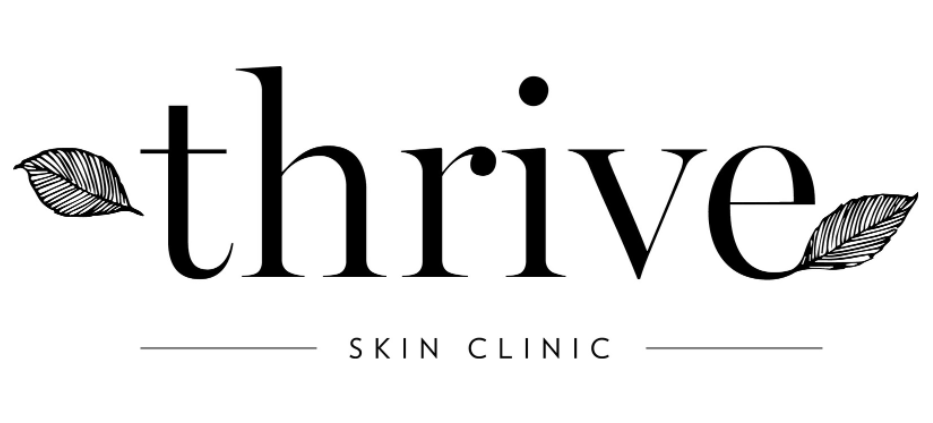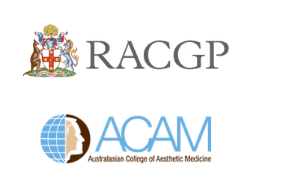Mythbusting: Anti-Wrinkle Injections, The Truth Uncovered
/With @DrJemimaGrant
MBBS (Hons) BSc (Med) (Hons) BA FRACGP FACAM GP & Cosmetic Physician, Medical Director @ThriveSkinClinic
Anti-wrinkle injections soften wrinkles by blocking the signal from nerve fibres to muscles, causing muscle relaxation. A few well-placed units will give a natural, refreshed appearance.
Anti-wrinkle injections are highly versatile and can be used to target a variety of areas on the face. Common treatment areas include frown lines, crow’s feet, forehead lines, and brow arch enhancement.
Lower face injections can be used with precision to refine the jawline and neck bands, and even treat conditions like temporal mandibular joint (TMJ) syndrome and bruxism (teeth grinding).
It's important to note that anti-wrinkle injections are not permanent. The effects typically last around 3-4 months in the upper face and longer in the lower face. However, results are visible after 2-5 days.
What do anti-wrinkle injections actually do?
There are lots of myths and preconceptions and I'll address a few of them below:
MYTH BUSTER #1 - Anti-wrinkle injections will smooth away all lines. NO.
There's a lot of confusion and misinformation out there about anti-wrinkle injections, so let's set the record straight. One of the biggest myths is that these injections will smooth away all lines on your face. The truth is, anti-wrinkle injections work by relaxing the muscles that pull on our skin with our normal facial expressions.
While this can certainly improve the appearance of fine lines and wrinkles caused by muscle movement, it won't do much for established lines at rest. These lines are like trenches in the skin - a furrow that dips in from the normal skin contour, and anti-wrinkle injections DO NOT fill in lines (this is what dermal fillers do, hence the term "filler").
The good news is, if you continue to have regular treatments, you will find the line softens and improves with time. I usually give it about 12 months. This is because your body will make collagen in the area of volume loss. In my experience, I find this especially occurs in the frown lines, and many of my regular patients find that their frown lines have almost disappeared after a year of regular treatment, as the muscle that causes these lines starts to atrophy.
So there you have it – anti-wrinkle injections may not be a miracle cure for all your wrinkles, but they can certainly help improve the appearance of certain types of lines over time. As always, it's important to consult with a qualified practitioner who can assess your individual needs and recommend the best treatment plan for you.
MYTH BUSTER #2 - Anti wrinkle injections can prevent lines. YES IT’S TRUE.
The truth is, if you start having regular injections before lines have permanently set in, you can actually prevent them from developing in the first place. This is because the anti-wrinkle medication weakens the muscles pulling on the skin.
Of course, the best time to start this kind of preventative treatment varies depending on your individual circumstances. The best time to start is when you see fine lines starting at rest - for most people this is in the mid 30s, but for some it is earlier or later, we are all unique.
To prevent lines and wrinkles, I advise a treatment every 3-4 months regularly. A once a year treatment won't prevent lines and wrinkles, because the medication will wear off at 3-4 months, and the muscles will start pulling on the skin again.
So, if you're looking to take a proactive approach to preventing wrinkles and maintaining a youthful appearance, regular anti-wrinkle injections may be the solution you've been looking for. Just remember to work with a qualified practitioner who can help you determine the best treatment plan for your unique needs.
MYTH BUSTER #3 - Anti-wrinkle injections will prevent all lines and wrinkles. WRONG!
The (sad) truth is, lines and wrinkles are not just caused by muscles pulling on the skin. They are also influenced by factors such as volume loss (think of a grape vs a raisin), thickness of skin and internal and external factors that influence ageing such as your internal body clock, UV light exposure and inflammation. This is why many people notice their "normal" anti-wrinkle treatment starts to work less in your 50s (for some in their 40s).
It's important to understand that this is not because your injector is "watering things down", but rather because the anatomy of your skin is changing. To combat the effects of ageing, it's crucial to invest in a holistic treatment plan that combines good homecare, collagen-inducing treatments, and anti-wrinkle and dermal filler injections.
This is why treatments such as Profhilo and dermal fillers increase volume in the skin, while collagen-boosting treatments like retinol, SPF, lasers, SkinPen, PDO monothreads, Tixel, and Ultraformer III are so important and also help to combat the appearance of lines and wrinkles. By combining these treatments with good homecare habits, you can create a comprehensive approach to anti-ageing that will help you look and feel your best at any age.
Ultimately, it may be a boring message, but it's based on facts. If you want to maintain a youthful appearance as you age, investing in a comprehensive approach to skincare is essential. By doing so, you can help to combat the effects of volume loss, changes in skin thickness, and internal and external factors that impact aging, and enjoy healthy, vibrant skin for years to come.
MYTH BUSTER #4 - You can only use anti-wrinkle injections in the upper face: WRONG!
Cosmetic injections for anti-wrinkles are extremely versatile. An experienced injector can reduce concerns such as "sad face" lines around the mouth, a dominant chin, upper lip lines, enhance the jawline, jowl and neck contour (the Nefertiti lift") and soften horizontal neck and decolletage.
Anti-wrinkle injections can also be used to reduce strong dominant muscles (such as masseter botox which slims the face and reduces tooth grinding), migraines and chronic pain. They can also reduce excessive sweating and improve skin quality (e.g. "microbotox" which targets redness, fine lines, sweating and oily skin). Anti-wrinkle injections can also reduce nasal allergies (hayfever), although the best treatment protocol and evidence base for this is still under review.
My caveat is this: injections only work if your cosmetic injector knows what they are doing, understands your anatomy, and the underlying issue causing your concern. It's easy to make a mistake in the lower face which can cause asymmetry in the smile.
Furthermore, if you don't have a problem, it won’t work, so your injector needs to have good assessment skills. Finally, the best outcomes are often achieved when we combine treatments. A good example here is the treatment of neck lines, where a combination of home care, bioremodelling injections, biostimulators, and PDO threads often give the best results.
MYTH BUSTER #5 - One brand works better than the other: WRONG!
I know I've posted about this before, but the dose, or amount of product used, is far more important than the brand. The technique of your injector is also important. If your injector is skilled to place it exactly in the muscle (where it needs to go), it will last longer. Remember that most of the brands are not equally potent, which means you can't compare 50 units of one to 50 units of the other.
I hope that this information has been beneficial. These myths are based on a combination of feedback I've received from my patients during their initial consultations. It is critical to confront your preconceived notions, aspirations, and desires BEFORE undergoing any treatment. Not only is this a prerequisite for informed consent, but a conversation about your ideas might prevent an unnecessary treatment, help you to spend your money more wisely on another treatment, or reduce post treatment anxiety.
Overall, if you're looking for a safe and effective way to soften wrinkles and enhance your natural beauty, anti-wrinkle injections may be a great option for you. Just be sure to consult with a qualified practitioner who can assess your unique needs and recommend the right treatment plan for you.
If you have any further questions about anti-wrinkle treatments, please don't hesitate to ask in the comments, or email. I will do my best to provide unbiased answers based on my own experience.











